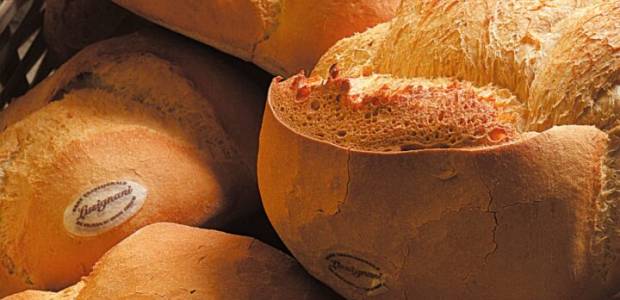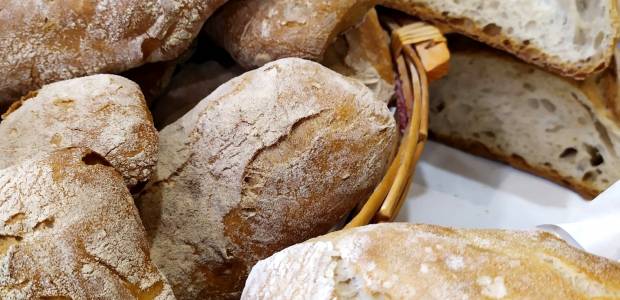Languages
A journey through the "breads" of the Parma Apennines
Memory and flavors of a territory
.
In the common imagination the territory of Parma has always been synonymous with pasta, cold cuts, wines and cheeses.
Let's imagine you want to try to explore its province in a path that starting from the plain leads us to its mountain, crossing different knowledge, flavors and culinary traditions.
We begin our itinerary going up from the foggy banks of the Po and bassa where to tease our throat are the culatelli and the cooked shoulders bagged by the skilled hands of the famous butchers of la basa.
We reach the roads that lead us to the Parma hills, where we abandon ourselves to the aromatic and sparkling taste of Malvasia di Sala Baganza, and then cross the Pedemontana and reach the court of Langhirano, a must for those who want to taste one of the finest hams in the world.
Moving higher, we approach the area of Calestano where we taste the famous Black Truffle of Fragno, to finally stop in the distant lands of Val Taro and Val Ceno, where we find mushrooms, chestnuts and other delicacies that we absolutely do not know how to give up.
Among the latter there is a product, as old as the history of man, a symbol of frugality and peasant simplicity, less known than the renowned porcini mushroom, which however has been able to redesign the gastronomic identity of our mountain.
It's called bread.
In a wild corner of our Apennines, called Pellegrino Parmense, this food has become a strong and recognizable brand, thanks to the passion of two friars and a family that preserves an ancient tradition born more than fifty years ago: to produce bread with the ingredients and processing procedures of the past, when the master bakers kneaded with their own hands selecting with extreme care yeasts and flours to be used.
The name of the family is Lusignani and their shop can be found in Via Roma, 7 in Pellegrino Parmense.
Their history began in 1947 and since then they have dedicated themselves to the production of bread, cakes and homemade desserts.
After the opening of the oven by the dean of the family Artemio Lusignani and his wife Giovanna, the two sons Elio and Giovanni, who succeeded in the management of the company, begin to spend every useful energy to search, like alchemists in search of the philosopher's stone, what could make their bread even more unique and special.
They start to study every single quality of wheat by recovering the seeds from the pristine fields near home and trying to understand how the final result obtained can change according to the type of wheat used. They go around universities, research and storage centers, stone mills until they find the secret of the perfect recipe: to obtain the right fragrance and consistency they understand that it becomes essential to take care of every single phase of the production chain, from the stone grinding of the flour obtained with local grains to the amalgamation of the ingredients themselves.
Since 1976 the Lusignani family has been using a "sour" sourdough which, combined with a variety of grains dating back to the times of the "battle of the wheat", helps to make the taste of their bread so characteristic and original: for some sour and "wild" as the woods and mountains of Val Stirone and Val Ceno, for others as good and simple as its people.
Even today, in the oven run by the brothers Gabriele and Tiziano together with his uncle and mother Maria, everything is taken care of down to the smallest detail: every single grain of wheat is harvested in the Stirone Valley, the oven is made of artificial lime bricks and the firewood is obtained exclusively from the surrounding forests, in the same way as that used for the tables on which the dough is left to rest.
Bread becomes a symbol capable of recalling the flavors and memories of the past, telling the identity of our Apennines, sometimes also useful to meet reasons of human solidarity and needs of mountain repopulation, as we are taught, for example, by the experience of the Ranzano oven.
Managed by the social cooperative @Biricca, in addition to producing a mountain bread of remarkable taste and refinement, this small but important reality guarantees employment opportunities to people in need of job placement, representing at the
same time a unique opportunity to keep economically alive a small fraction like that of Ranzano.
The example of these companies and families tells us how on the Parma Apennines research, passion, biodiversity and solidarity can meet and constitute the true daily bread of a territory rich in stories, products and long family traditions that are just waiting to be explored and savored.






